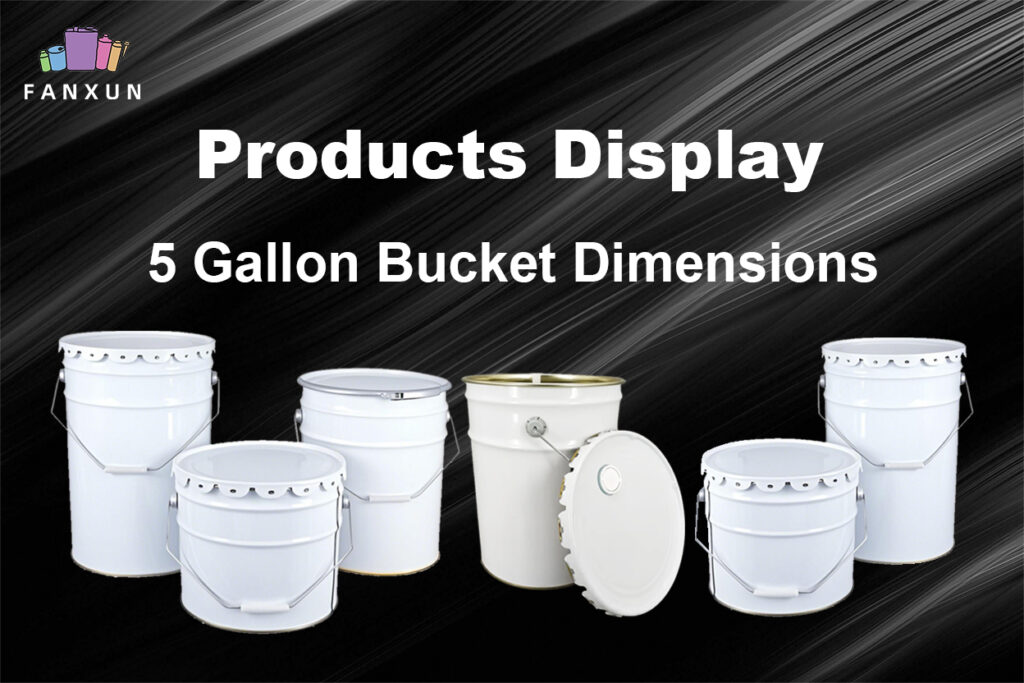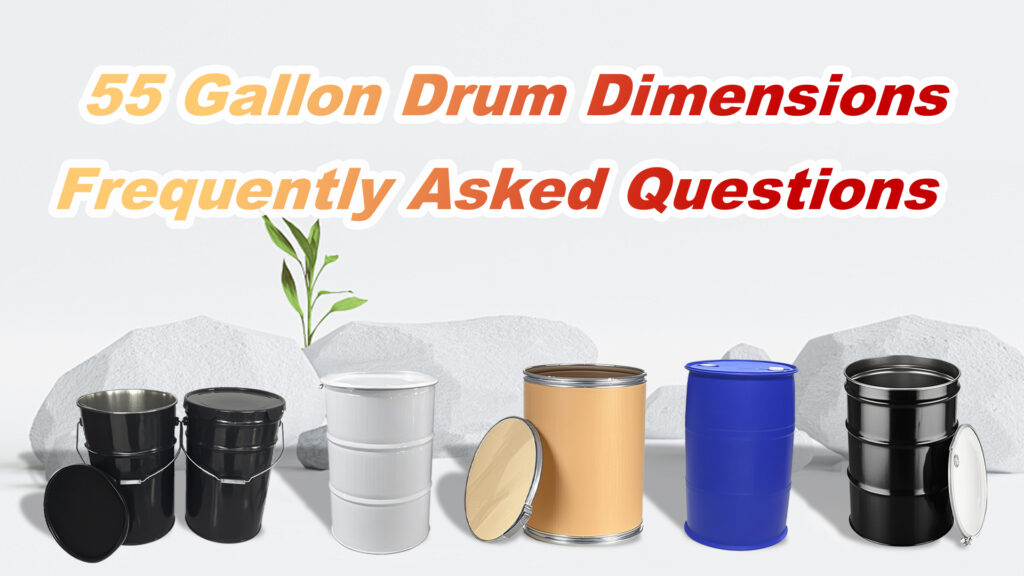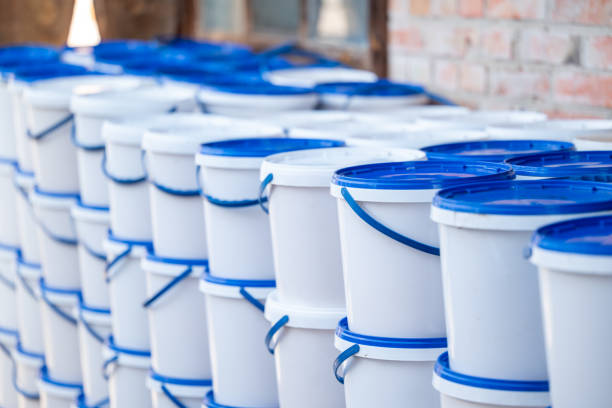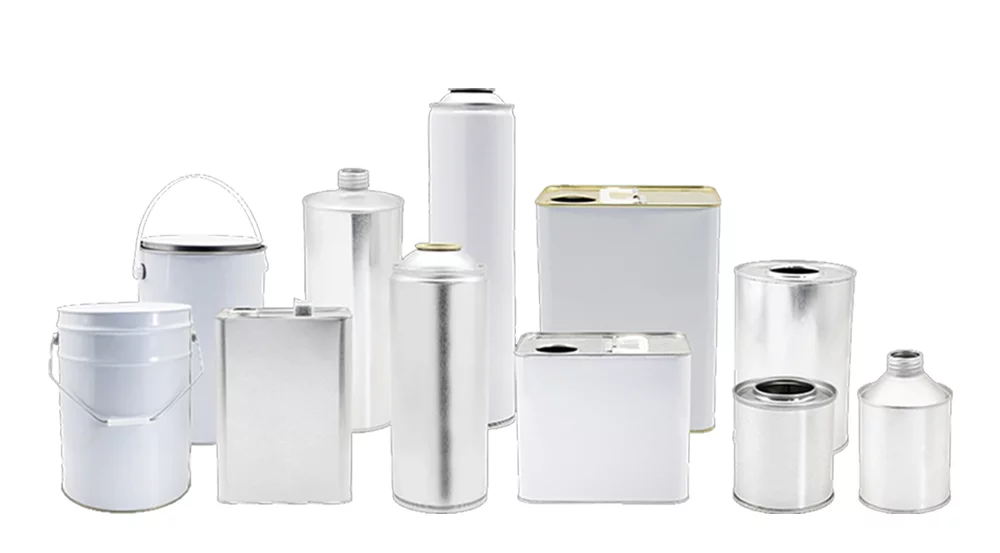Aerosol cans are a common household item, but have you ever stopped to think about how they work? Desde el cuidado personal hasta las aplicaciones industriales, aerosol cans have revolutionized the way we apply and dispense various products. En esta guía completa, we will delve deep into the intricate world of aerosol cans, exploring their manufacturing process, functionality, diverse uses, potential hazards, and the importance of responsible use.
What Is an Aerosol Can?

An aerosol can is a metal container that houses a product under pressure, typically propelled by a liquefied gas or compressed air. The can features a valve system that allows the contents to be released in the form of a fine mist or spray when the nozzle is pressed.
How Aerosol Cans Are Made?
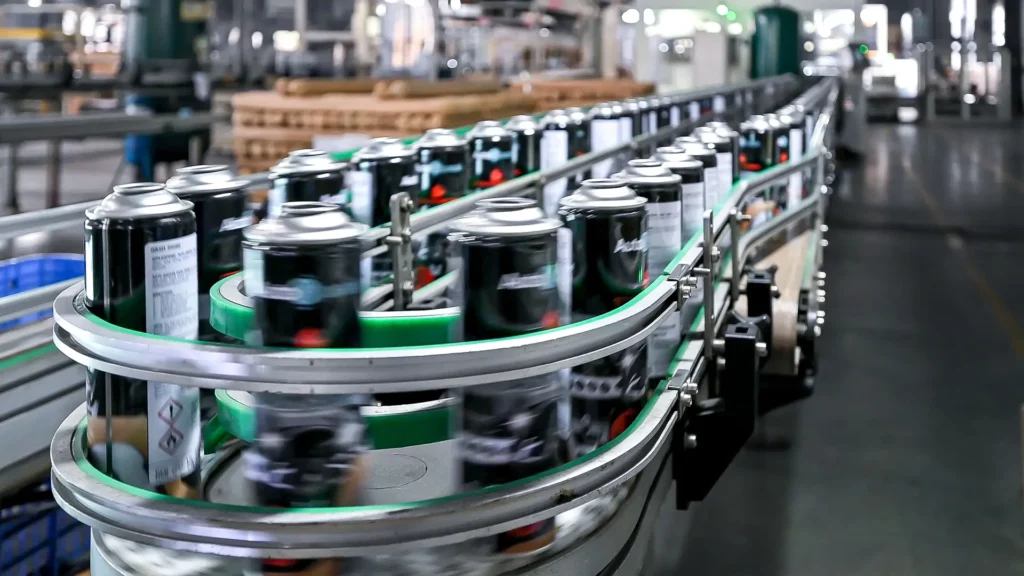
The manufacturing process of aerosol cans is a carefully orchestrated ballet of precision and innovation.
- Organización: The intricate process of manufacturing aerosol cans commences with the meticulous shaping of a tin-plated steel disk into a cylindrical structure.
- Revestimiento: Following the shaping stage, the can undergoes a coating application to prevent corrosion and ensure durability.
- Filling with product: Once the protective layer is applied, the can is meticulously filled with the specific product intended for use.
- Sellando: Subsequently, the can is expertly sealed to ensure the contents remain securely contained within.
- Pressurized: To propel the contents out of the can in a controlled manner, the canister is pressurized with a specialized propellant gas.
- Fitting: The final step involves fitting the aerosol can with a sophisticated valve and nozzle assembly, allowing for precise dispensing of the product when activated.
How Aerosol Cans Work?
When the nozzle of an aerosol can is depressed, the valve mechanism is activated, allowing the pressurized contents to escape in a controlled manner. The propellant gas expands rapidly, forcing the product out of the can as a fine mist or spray. This mechanism enables the user to apply the product evenly and efficiently.
What Are Aerosol Cans Used For?
In various sectors such as automotive, industrial, cuidado personal, arte, and food, aerosol cans serve as indispensable tools for dispensing a wide array of products efficiently and conveniently.
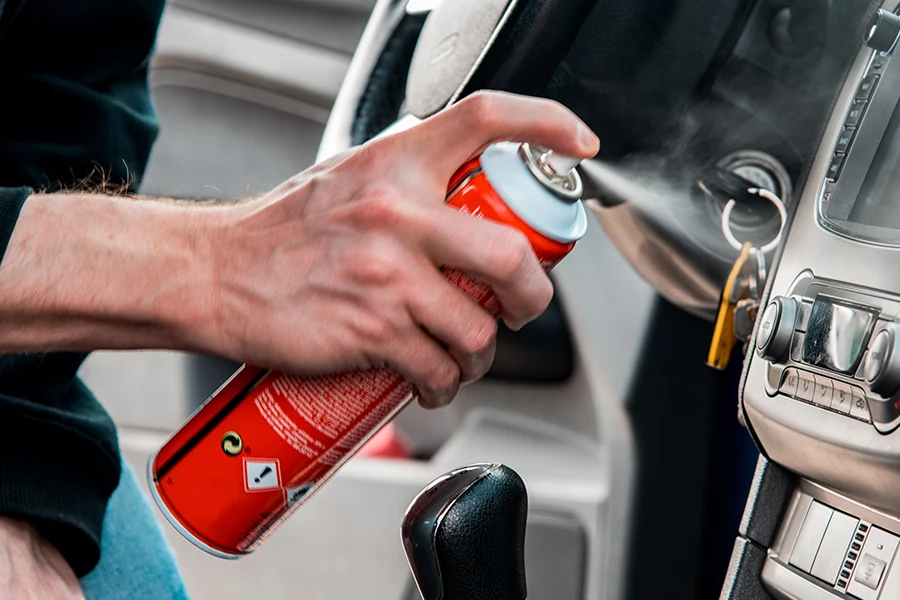
Industria automotriz
Aerosol cans are widely used in the automotive industry for a variety of purposes. They are commonly utilized to store and dispense car wax, tire shine, engine degreasers, y lubricantes. These products are essential for maintaining and preserving the appearance and functionality of vehicles. The convenience of aerosol cans allows for easy application of these products, ensuring a smooth and efficient process for automotive maintenance.
Industrial applications
En entornos industriales, aerosol cans play a significant role in storing and dispensing various substances. Lubricants are often stored in aerosol cans for convenient application to machinery, ensuring smooth and efficient operation. Además, cleaning equipment and coatings or adhesives are commonly stored in aerosol cans for easy and precise application in industrial processes. The pressurized nature of aerosol cans allows for controlled and efficient dispensing of these substances, making them a valuable tool in industrial applications.
Productos de cuidado personal
Aerosol cans are a popular choice for storing and dispensing personal care products. Desodorantes, lacas para el cabello, and cosmetics are commonly found in aerosol cans due to their ease of use and convenience. The spray mechanism of aerosol cans allows for even and precise application of these products, ensuring a consistent and effective result. Personal care products stored in aerosol cans are favored for their convenience and ease of use in daily grooming routines.
Art and DIY Supplies
Aerosol cans are frequently used in the art and do-it-yourself (Bricolaje) communities for a variety of applications. Artists use aerosol cans to apply paint, varnish, and other coatings to their artwork or creative projects. The convenience and versatility of aerosol cans make them a convenient choice for achieving a smooth finish and even coverage on a variety of surfaces. DIY enthusiasts also find aerosol cans useful for projects such as refinishing furniture, creating stenciled designs, or adding a protective coating to surfaces.
Food Products
Aerosol cans are also utilized in the food industry for storing and dispensing various food products. Whipped cream, aerosoles de cocción, and edible oils are commonly found in aerosol cans for convenient and easy application in cooking and baking. The pressurized nature of aerosol cans allows for controlled dispensing of these food products, ensuring precise and mess-free usage. The convenience and efficiency of aerosol cans make them a popular choice for storing food products in both commercial kitchens and home kitchens.
FAQs on Aerosol Cans
Can Aerosol Cans Explode?
Some aerosol cans have the potential to explode if they are subjected to extremely high temperatures. This is because aerosol cans contain pressurized gases or liquids that can expand when exposed to heat, leading to an increase in pressure inside the can. If the pressure becomes too great, the can may rupture or explode, posing a safety hazard.
Are Aerosol Sprays Toxic?
While aerosol sprays have the potential to contain harmful chemicals, industrial standards and regulations have aimed to minimize risks to consumers. It is essential to read product labels and use aerosol sprays in well-ventilated areas to reduce exposure to potentially toxic substances.
What Happens if You Puncture an Aerosol Can?
Puncturing an aerosol can can result in a dangerous release of pressurized contents, creating a risk of explosion or injury. It is crucial to handle aerosol cans with care and avoid puncturing them, even when they are empty.
How to Fix a Broken Aerosol Can?
If an aerosol can becomes damaged or malfunctions, it is advisable to dispose of it properly according to local regulations. Attempting to fix a broken aerosol can can lead to further issues and potential safety hazards.
How to Choose an Aerosol Cans Manufacturer?
When deciding on an aerosol cans manufacturer, it is crucial to take various factors into consideration to ensure that you are making the right choice.
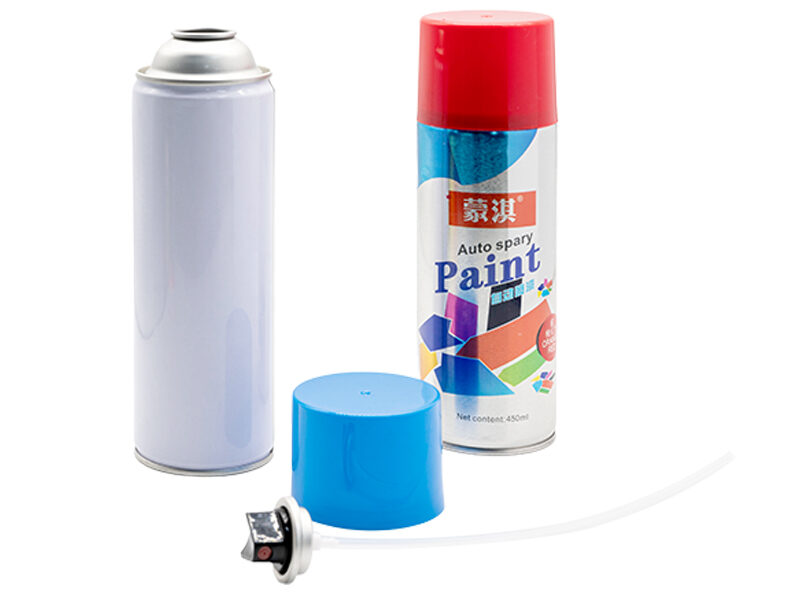
Company’s Reputation
One of the key aspects to look at is the reputation of the manufacturer. A reputable aerosol cans supplier will have a solid track record of producing high-quality aerosol cans that meet industry standards and customer expectations. You can research the manufacturer’s background, read reviews from customers, and check if they have any certifications or awards that reflect their commitment to excellence.
Quality Control Processes
Quality control processes are another important consideration when choosing an aerosol spray bottle manufacturer. A manufacturer that prioritizes quality control will have stringent processes in place to monitor and evaluate the production of their cans. This includes testing the cans for durability, leakages, and safety features to ensure that they meet required standards. By choosing a manufacturer with robust quality control processes, you can trust that the aerosol cans you receive are of top-notch quality.
Environmental Practices
Environmental practices are also worth considering when choosing an aerosol cans manufacturer. Opting for a manufacturer that prioritizes sustainability and eco-friendly practices can help minimize the environmental impact of aerosol can production. Look for manufacturers that use recyclable materials, reducir gasto, and implement energy-efficient processes in their manufacturing facilities.
Conclusión
En conclusión, aerosol cans are versatile and convenient containers that play a vital role in various industries and everyday life. Understanding how aerosol cans are made, how they work, and their potential risks can help consumers make informed choices when using these products. By following safety guidelines and selecting reputable manufacturers, we can continue to enjoy the benefits of aerosol cans while minimizing potential hazards.















